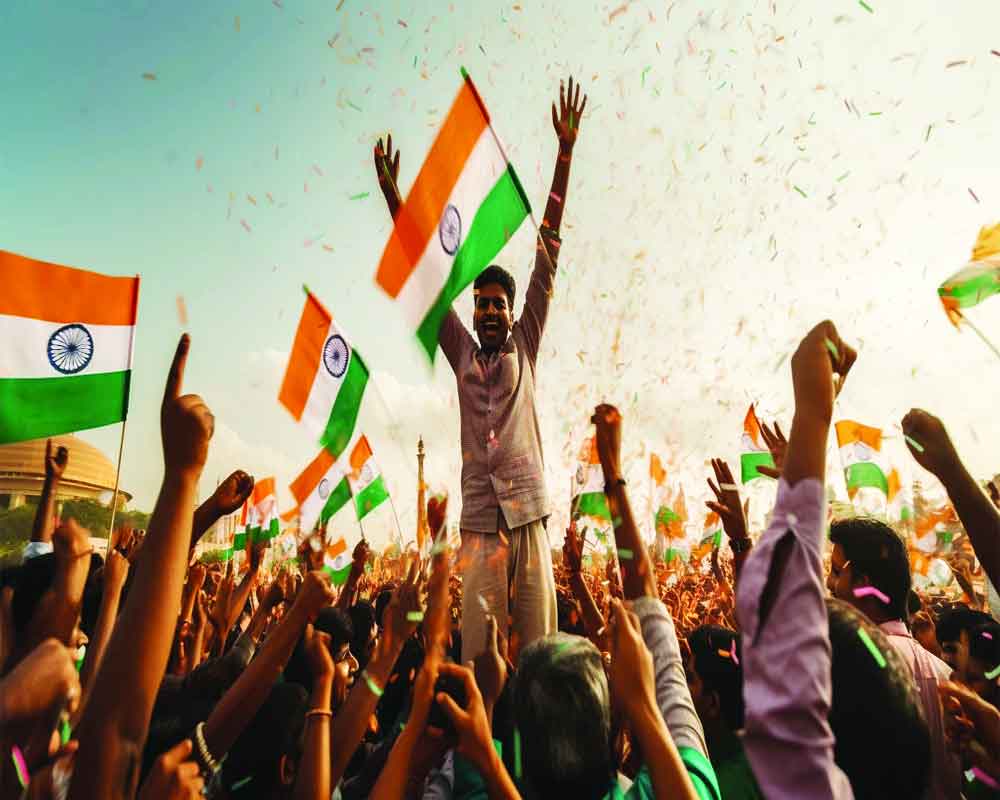A Raja’s remarks, rooted in a divisive political ideology, reflect a dangerous trend of separatism that undermines the unity of India
DMK MP A Raja can perhaps be forgiven, for believing that India is only a subcontinent and not a country, only on grounds of stark ignorance. One doesn’t know whether Raja has ever gone to a university, but even if he had, he has learnt nothing useful. More ironic would be the fact that even his political knowledge—assuming he has any worthwhile of it in the first place—appears to have let him down.
A background into Raja’s anti-centre and anti-Indian fulminations would be necessary. His party the Dravida Munnetra Kazhagam (DMK) came into existence based on sectarian hatred against the Brahmin community, Sanskrit and the Hindu religion itself. Later, this morphed into anti-Indian sentiment; the DMK committed to seceding from the Indian Union as part of its party manifesto, which it claimed as an inalienable political right, giving it up only in 1962. It, however, continues to remain virulently anti-Hindu and anti-Hindu. Its political ideology is based on pitting Tamil Nadu as a ‘separate’ civilization from the rest of India, particularly Hindu civilization. Raja, in an election year, is trying to fan the embers of that fossilised ideology.
But facts and reality make rubbish of Raja’s utterances. Let us take the most visible facet of Hindu dharma—the temple. Some of the first Hindu temples, and certainly the most in number, are situated in Tamil Nadu. Be it Shaivism or Vaishnavism, the modes of worship are exactly what they are in all other parts of India, except maybe the use of Tamil in place of Sanskrit in many temples in the state. The cardinal point being made here is that Hinduism in all its fascinating shades is the same across the country and that is the spine that makes India a single civilization, and constitutionally, a single country.
Mohammad Ali Jinnah from 1940 to the end of his life in 1948, believed and propagated that Hindus and Muslims are so different that they cannot co-exist in one country. So far, in post-independence India, they have managed to do so. On the other hand, the two wings of Pakistan, East and West, fell apart in 1971 because of what Jinnah’s beloved Pakistan did. In the western wing, the Ahmediyas—Muslim but the followers of Mirza Ghulam Ahmed—have been expelled from Islam. Thereafter, there have been vociferous demands often accompanied by vigilante violence, for the expulsion or extermination of the Shias, whose first leader Hazrat Ali and his sons Hasan and Hussein were direct relatives of Prophet Mohammad.
The point to be iterated here is that even the closely-knit Islamic community is not able to hold a country together. In the early years of President Gamal Abdel Nasser of Egypt, his country and Syria merged to become the United Arab Republic (UAR); the ‘unity’ lasted just three years (from 1958 to 1971), as both returned to their separate entities.
Those citizens of Tamil Nadu like A. Raja who talk of India as a subcontinent are not Hindus but are, in all likelihood crypto-Christians, who conceal their faith under the cloak of Hindu names. Their separatism is dangerous more to Tamil Nadu and less so to India. The reason is that there are more Hindus in Tamil Nadu than any other community and therefore, are not going to separate from India on any temptation. As a consequence, if any fissiparous activity were to break the state, it would leave no chance of any secession from India. We wonder whether A. Raja has realised the folly of his ‘subcontinental’ thesis.
The Raja writ may run in Chennai and the districts around it. The Nagercoil area of the extreme southern part of the state is nearer its neighbour Kerala than being a devotee of the Raja thesis. The northern districts of Tamil Nadu are indifferent to the Raja theory. Raja should realise that it is one thing to talk about seceding, but quite another to survive in separation. For example, dealing with neighbouring countries is a different kettle of fish, whether it is regard to river water or imports and exports.
The prestige and clout a large and powerful country like India can command is something a small country cannot even dream of. What then becomes necessary is seeking the refuge of a larger bloc, the way Estonia, Lithuania, and Latvia have joined NATO. Being so small, these three countries would have no say in the conduct of NATO, but on the other hand, would have to make quite some sacrifice in exchange for only military protection.
Thought should be given to whether Tamil Nadu could have built up such a large automobile industry had it been a small, separate country. TN’s automobile industry’s success has happened because A. Raja’s state is part of a large country. This also throws open a large, open home market. Competing with large automobile makers in the home market will make survival difficult; without the support of a home market, it is impossible. To sum up, secession and surviving as a separate entity is a far more complex proposition than life after talaq (divorce), which is of course, different and difficult enough.
(The writer is a well-known columnist, an author and a former member of the Rajya Sabha. The views expressed are personal)


























